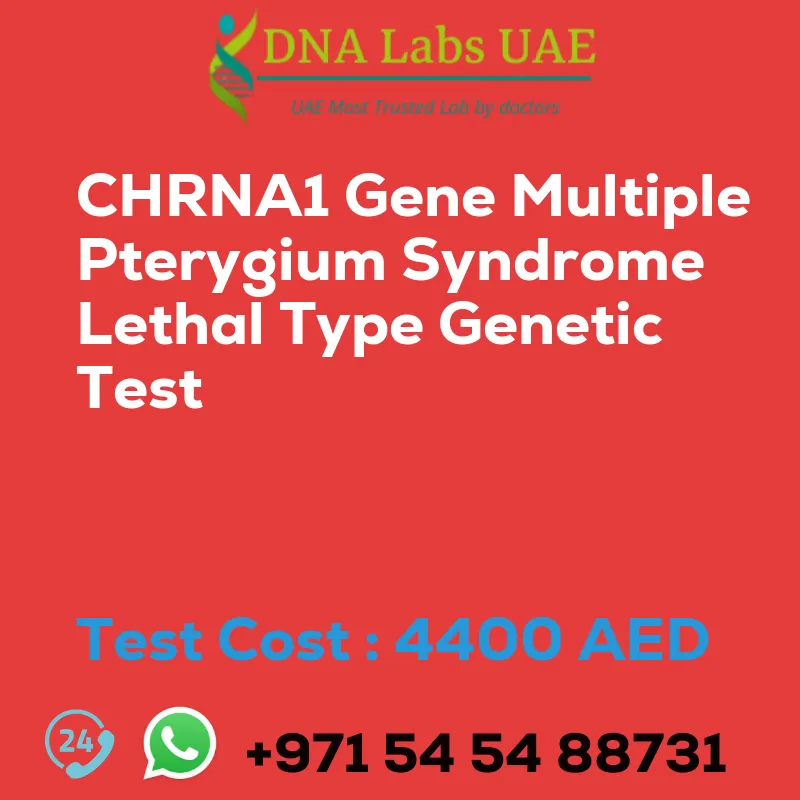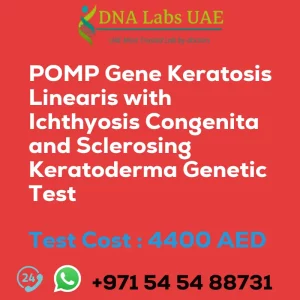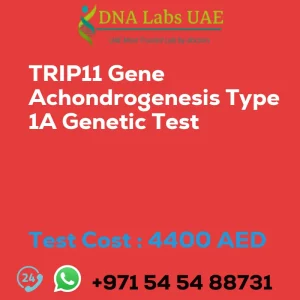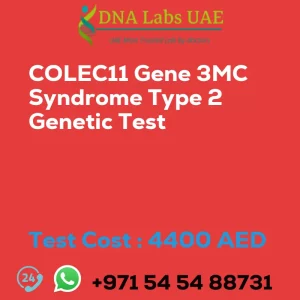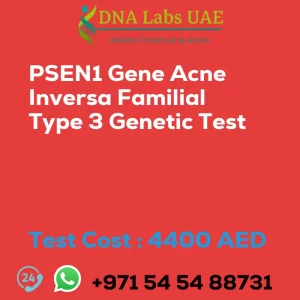CHRNA1 Gene Multiple Pterygium Syndrome Lethal Type Genetic Test
Introduction
The CHRNA1 gene is associated with Multiple Pterygium Syndrome Lethal Type (MPSLT), a rare genetic disorder characterized by multiple joint contractures (pterygia), facial anomalies, and severe muscle weakness.
Test Details
The CHRNA1 Gene Multiple Pterygium Syndrome Lethal Type Genetic Test is a Next-Generation Sequencing (NGS) genetic testing method used to analyze the DNA sequence of the CHRNA1 gene. This test can identify mutations or variations in the gene that may be responsible for causing MPSLT.
Components
- Test Name: CHRNA1 Gene Multiple Pterygium Syndrome Lethal Type Genetic Test
- Price: 4400.0 AED
- Sample Condition: Blood or Extracted DNA or One drop Blood on FTA Card
- Report Delivery: 3 to 4 Weeks
- Method: NGS Technology
- Test Type: Osteology Dermatology Immunology Disorders
- Doctor: Dermatologist
- Test Department: Genetics
Pre Test Information
Before undergoing the CHRNA1 Gene Multiple Pterygium Syndrome Lethal Type NGS Genetic DNA Test, it is important to provide the clinical history of the patient. A Genetic Counselling session may be conducted to draw a pedigree chart of family members affected with CHRNA1 Gene Multiple Pterygium Syndrome Lethal Type NGS Genetic DNA Test gene CHRNA1.
Test Process
The NGS genetic test for the CHRNA1 gene involves collecting a DNA sample from the individual being tested, usually through a blood sample or cheek swab. The collected DNA is then sequenced using NGS technology, allowing for the rapid and efficient analysis of the entire gene sequence.
Test Results
The results of the NGS genetic test can help confirm a diagnosis of MPSLT and provide information about the specific genetic mutation or variation present in the CHRNA1 gene. This information can be useful for genetic counseling, family planning, and potentially guiding treatment decisions.
Important Note
It is crucial to perform and interpret genetic testing for MPSLT and other genetic disorders under the guidance of a qualified healthcare professional or genetic counselor. They can provide detailed information about the benefits, limitations, and potential risks associated with genetic testing, as well as help interpret the results and provide appropriate guidance and support.
| Test Name | CHRNA1 Gene Multiple pterygium syndrome lethal type Genetic Test |
|---|---|
| Components | |
| Price | 4400.0 AED |
| Sample Condition | Blood or Extracted DNA or One drop Blood on FTA Card |
| Report Delivery | 3 to 4 Weeks |
| Method | NGS Technology |
| Test type | Osteology Dermatology Immunology Disorders |
| Doctor | Dermatologist |
| Test Department: | Genetics |
| Pre Test Information | Clinical History of Patient who is going for CHRNA1 Gene Multiple pterygium syndrome lethal type NGS Genetic DNA Test. A Genetic Counselling session to draw a pedigree chart of family members affected with CHRNA1 Gene Multiple pterygium syndrome lethal type NGS Genetic DNA Test gene CHRNA1 |
| Test Details |
The CHRNA1 gene is associated with Multiple Pterygium Syndrome Lethal Type (MPSLT), a rare genetic disorder characterized by multiple joint contractures (pterygia), facial anomalies, and severe muscle weakness. NGS (Next-Generation Sequencing) genetic testing is a method used to analyze the DNA sequence of the CHRNA1 gene. This type of testing can identify mutations or variations in the gene that may be responsible for causing MPSLT. The NGS genetic test for the CHRNA1 gene involves collecting a DNA sample from the individual being tested, usually through a blood sample or cheek swab. The DNA is then sequenced using NGS technology, which allows for the rapid and efficient analysis of the entire gene sequence. The results of the NGS genetic test can help confirm a diagnosis of MPSLT and provide information about the specific genetic mutation or variation present in the CHRNA1 gene. This information can be useful for genetic counseling, family planning, and potentially guiding treatment decisions. It is important to note that genetic testing for MPSLT and other genetic disorders should be performed and interpreted by a qualified healthcare professional or genetic counselor. They can provide detailed information about the benefits, limitations, and potential risks associated with genetic testing, as well as help interpret the results and provide appropriate guidance and support. |

